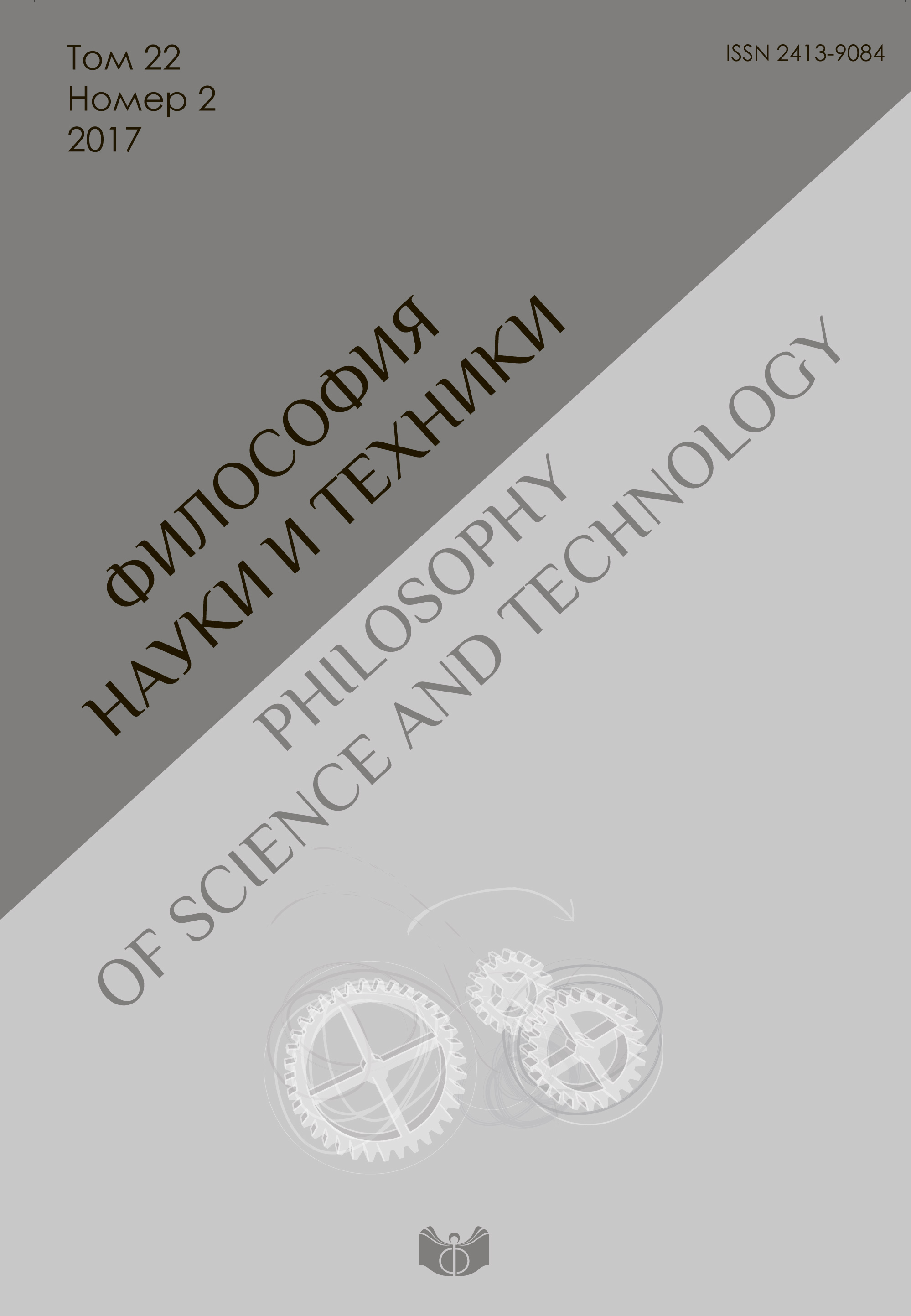Epigenetics in epistemology
DOI:
https://doi.org/10.21146/2413-9084-2017-22-2-60-74Keywords:
epistemology, epigenetics, postmodern, poststructuralism, Tulmin's evolution epistemology, virology, postnonclassicalAbstract
This paper inquires into questions of contemporary epistemology’s outlines, its status among other disciplines, its own structure and approach. Emergence of postnonclassical rationality demands cultivation of postnonclassical epistemology as a new stage in its
development. Achievements of contemporary science, including evolutionary theory, biology, neurophysiology and synergy, on one hand, lead to a crisis situation in epistemology, i.e. to widespread and far-reaching changes and in this connection an insistent necessity
appears to [re]-determine the outlines of epistemology; on the other hand, due to these same changes this task can be done. An attempt of making this double movement is what this article is about. V. Rozin’s paper “Contemporary problems of epistemology” in which four
major oppositions of modern epistemology are denominated has been chosen as a starting point. The paradoxical situation of crisis and ascent simultaneity in epistemology is solved by performing the postmodern “test”. This “test” how it is interpreted in current paper involves
deconstruction of V. Rozin’s text and draws together his version of evolutionary epistemology and poststructuralists thinkers. The egression of epistemological studies into interdisciplinary space brings doubts about the possibility of construction of the homogeneous discourse. This
contradiction vanishes when once a small slice of history of epistemology is deconstructed. The unclarity related to what knowledge and perception is dissipates credit for the notion of “World 3” invented by K. Popper and his followers and the notion of “co-evolution” how it’s
operated in the research of neurophysiologist T. Deacon. The last opposition regarding the place of epistemology as a discipline is removed by throwing bridges between epistemology and epigenetics, the discipline that was founded by K. Waddington. Therefore the text is
constructed as unveiling these oppositions by means of poststructuralistic methodology and conceptions that were elaborated within the context of evolutionary epistemology on the basis of contemporary science data.











